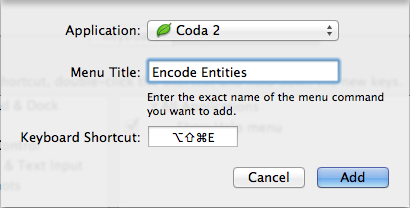

- CODA 2 SAVE ALL OPEN FILES PDF
- CODA 2 SAVE ALL OPEN FILES VERIFICATION
- CODA 2 SAVE ALL OPEN FILES SOFTWARE
CODA 2 SAVE ALL OPEN FILES PDF
When Master PDF Editor starts, select one of recently opened file on the Start page.You can quickly reopen any of them as follows: Master PDF Editor remembers recently opened files. Opened files are displayed as tabs in the view area: You can also open PDF files saved from the Internet or local network or received by e-mail. Right-click a PDF file in any Explorer window to open the context menu and select Open with Master PDF Editor item.Drag-and-drop a PDF file from another application to Master PDF Editor.Then browse for a PDF file you need in the open dialog and open it. Open the File > Open menu or press the Ctrl+O shortcut.To open a PDF document in Master PDF Editor use one of the following: Opening and Saving PDF Files Opening PDF files in Master PDF Editor There is also online documentation available of the product format definitions that are included in these. codadef files for the following earth observation missions: product classĮNVISAT auxiliary and other common productsĮUMETSAT Polar System atmospheric products (GOME-2 and IASI)ĮRS-1 and ERS-2 microwave radiomater productsĮRS SAR products using the ENVISAT format If you only want to use CODA, you can retrieve. Both HARP and BRAT already include their own .codadef files. For raw ASCII and binary (and partially also XML) formats CODA makes use of an external format definition stored in. For self describing formats such as netCDF, HDF, and GRIB, CODA will automatically construct this mapping based on the file itself. This is done by using a generic high level type hierarchy mapping for each data format. The tool comes with a very powerful filtering mechanism that makes it possible to search for only those product files that match certain filter criteria.ĬODA provides a single interface to access data in a wide variety of data formats, including ASCII, binary, XML, netCDF, HDF4, HDF5, CDF, GRIB, RINEX, and SP3. The codafind command line tool allows you to search files and directories for product files that are supported by CODA. The codaeval tool allows you to run such an expression on one or more product files, or you can use it as a quick way to just syntactically and grammatically check an expression. The tool allows you to inspect the product structure (including array sizes), view and export data from the product in ASCII format, and export data into HDF4 format.ĬODA comes with an expression language.

With the codadump command line tool you can view data from any product file that is supported by CODA. codadef files and is able to generate HTML documentation for the product format definitions that are inside. The codadd tool allows for a quick validation of.
CODA 2 SAVE ALL OPEN FILES VERIFICATION
The tool is primarily intended for verification purposes. With codacmp two product files can be compared. The codacheck command line tool provides a way to perform a basic sanity check on product files. The Java interface wraps the C Library functions behind classes for CODA Products, Types, and Cursors. The Java interface provides a wrapper for the CODA C Library using JNI. The Python interface contains both direct wrappers for the C Library functions (so you can traverse a product using the so-called CODA cursors) as well as the more high level functions that can be found in the IDL and MATLAB interfaces (e.g. The Python interface provides a wrapper for the CODA C Library. The MATLAB interface provides a wrapper for the C Library through a small set of powerful functions (such as coda_fetch) which are available from within MATLAB. The IDL interface provides a wrapper for the C Library through a small set of powerful functions (such as coda_fetch) which are available from within IDL. The Fortran interface provides a small wrapper for the C Library and allows you to call its functions from your Fortran 77/90 programs. As a developer you can also use this library and gain easy, high-performance access to all data in products that are supported by CODA. The C interface is the foundation of CODA upon which all other CODA tools are build.
CODA 2 SAVE ALL OPEN FILES SOFTWARE
The CODA software is used as a core data access component in various software applications, such as HARP, VISAN, QDOAS, BRAT, and several ESA internal quality control tools.ĬODA consists of the following components: C interface Furthermore, CODA also comes with a set of command line tools (codacheck, codacmp, codadump, and codafind). On top of this C library there are several interfaces available to directly ingest product data using e.g. It can also be used as a generic reading library for many types of HDF4, HDF5, netCDF, GRIB, and XML files.Īll product file data is accessible via the CODA C library. CODA allows direct reading access to local product files, supporting a wide range of products.ĬODA supports more than a hundred different types of atmospheric data products (covering level 0 through level 4 and auxiliary data) but also covers several non-atmospheric products.


 0 kommentar(er)
0 kommentar(er)
